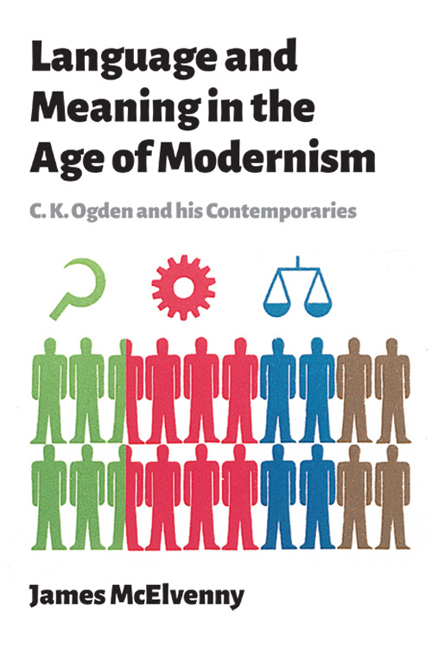Summary
‘What the world needs most’, Ogden (1931: 13) tells us, ‘is about 1,000 more dead languages – and one more alive’. By the 1930s the unprecedented technological advances delivered through modern engineering, the practical-minded sibling of science, had shrunk the world: railways, radio, telephones and aeroplanes made it possible to send messages instantly to the furthest parts of the globe; people and goods could reach them in a fraction of the time it took only a generation before. But despite European civilisation's conquest of the natural world, the barbarism and base national jealousy buried at its foundations had not been overcome. In Ogden's mind, and the minds of many others, the root of the problem was the curse of Babel, and the solution was the adoption of an international language. Only a common medium would secure scientific intercourse, progress and efficiency, and peace. But just as the modern technology that had already brought us so far was not of nature – wheels and rails, fixed wings and propellers, speakers, microphones and the transmission apparatus in between are wholly artificial products – so, Ogden was not alone in thinking, no existing natural language could solve the problem of international communication. What was needed was a new, artificial language, better than those that already existed; it would be the product of a new form of linguistic engineering informed by the scientific study of language and meaning already underway.
Ogden's solution was his project Basic English, a specially modified form of Standard English. By the time his first publications about it appear in 1927, interest in the international language problem had reached its height, having been in the general public consciousness for almost fifty years, with myriad proposals for a common international tongue. The historian who wants to quote dates to delineate one age from another will place their stake at the year 1879, the year in which the first publications on the language project Volapük appeared, the first of the international languages to actually win a community of speakers. Following closely behind, in 1887, is Esperanto, the most successful of the international languages, both in terms of the number of speakers it was able to acquire and the longevity it was able to achieve. Today there is still a small but active worldwide community of Esperanto speakers.
- Type
- Chapter
- Information
- Language and Meaning in the Age of ModernismC.K. Ogden and His Contemporaries, pp. 54 - 112Publisher: Edinburgh University PressPrint publication year: 2018



